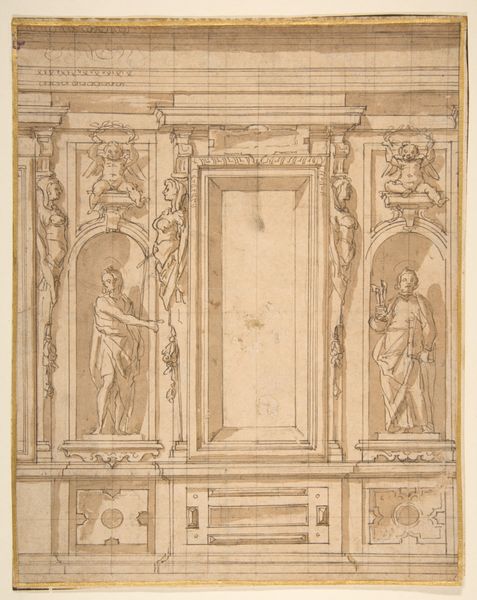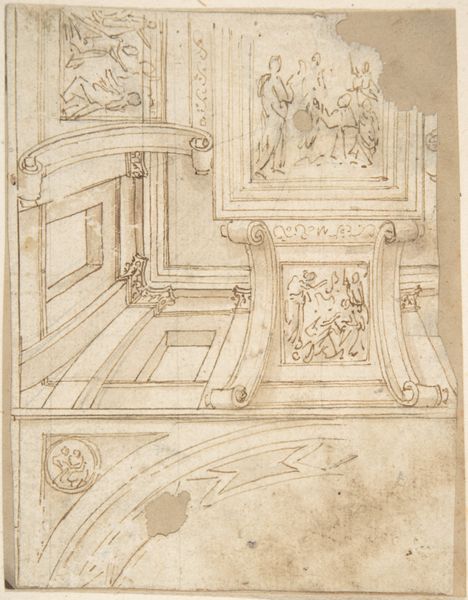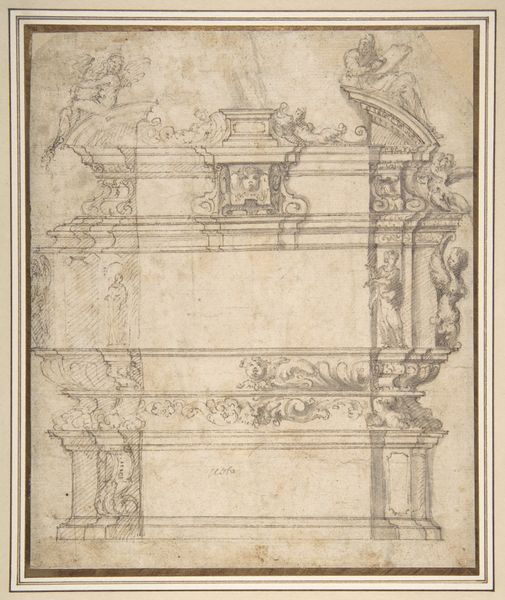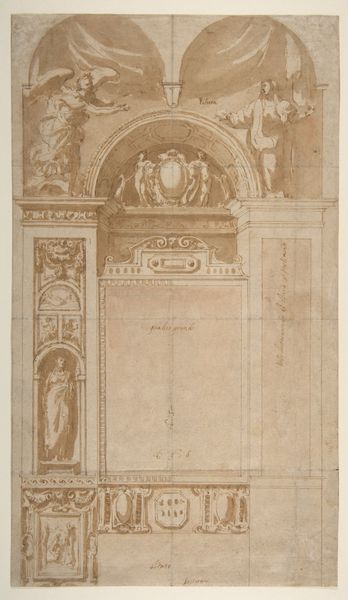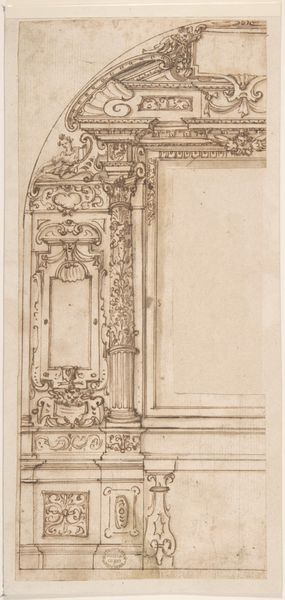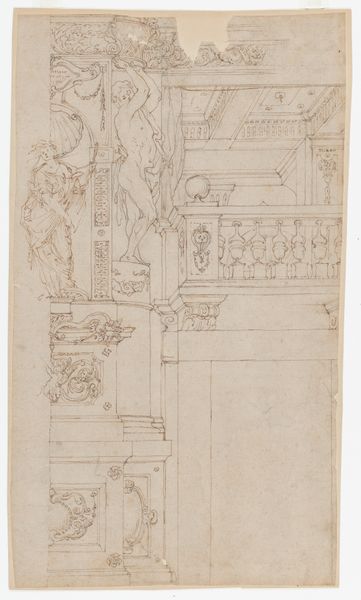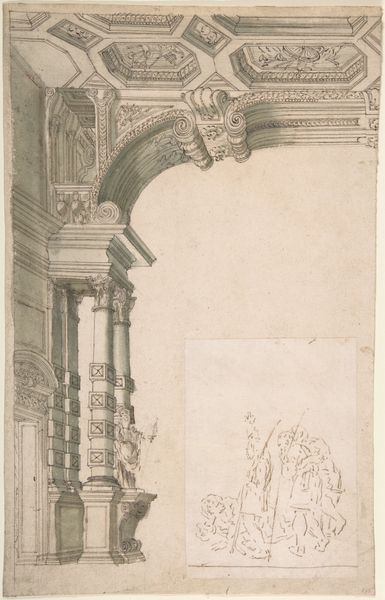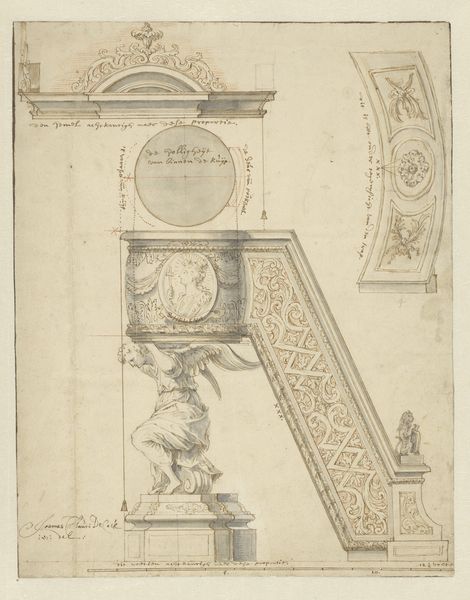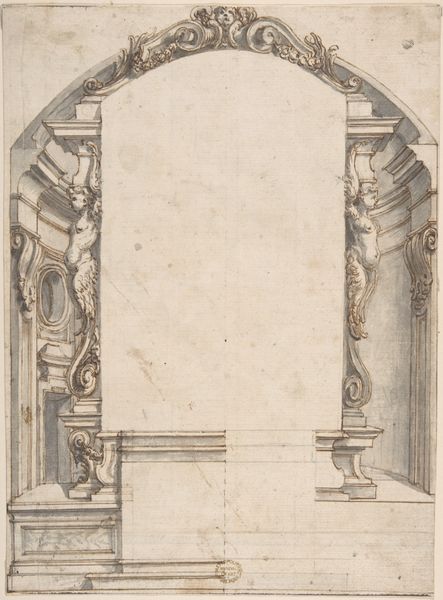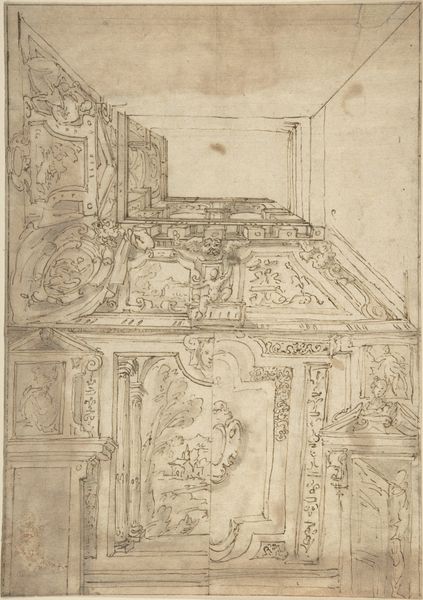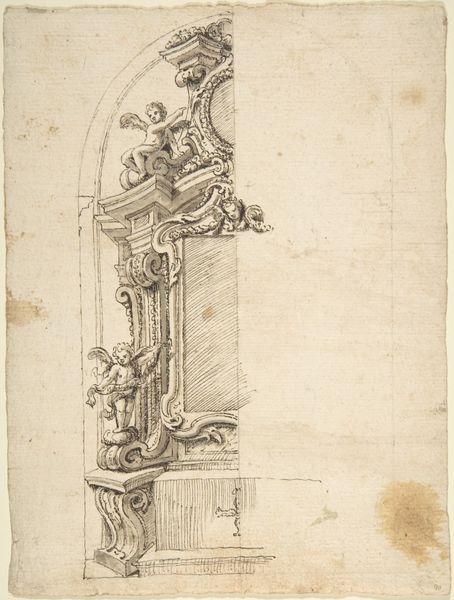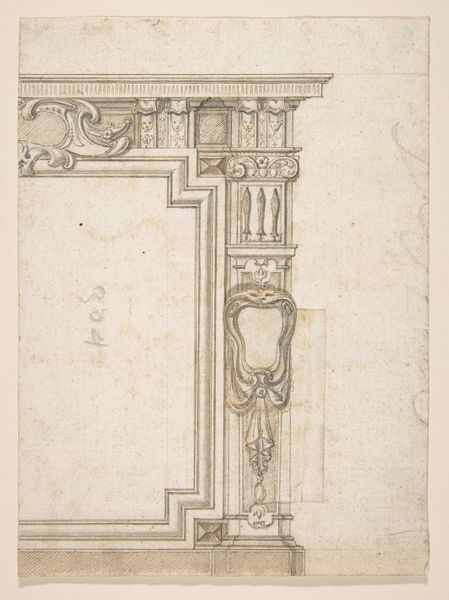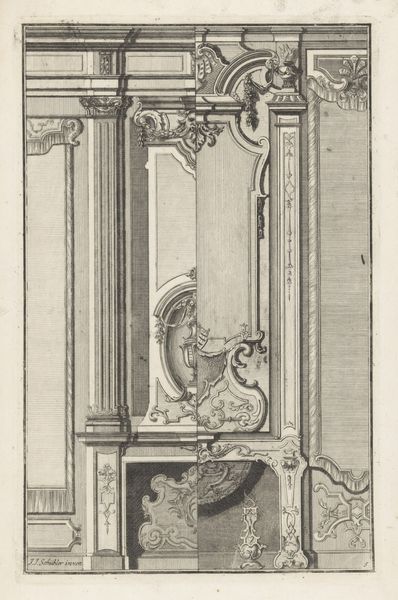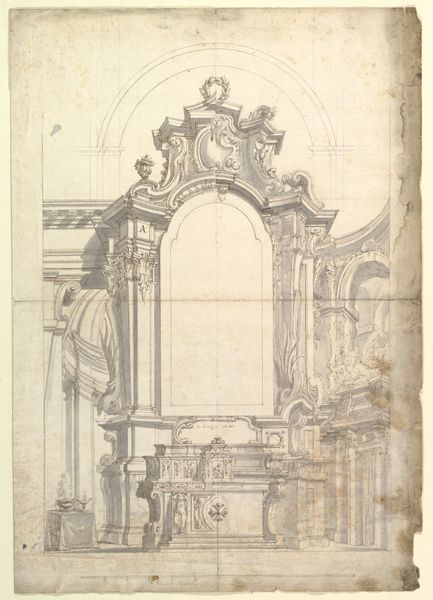
drawing, print, paper, ink, pen, architecture
#
portrait
#
drawing
#
baroque
# print
#
pen sketch
#
figuration
#
paper
#
form
#
ink
#
geometric
#
line
#
pen
#
history-painting
#
academic-art
#
architecture
Dimensions: 9-11/16 x 3-7/8 in. (24.6 x 9.8 cm)
Copyright: Public Domain
Editor: This pen and ink drawing, "Left Half of the Design for an Altar," comes to us from an anonymous artist working sometime in the 17th century. It strikes me as very linear and academic. What do you see in this piece that jumps out at you? Curator: What I notice is the symbolic architecture; its components build into a culturally resonant spiritual structure. Notice how the cherub isn’t just decoration – it guards the space, acting as a bridge between the earthly and divine realms, wouldn’t you say? Editor: Yes, I see that. It's placed almost as a sentinel. Is it common to see these figures in architectural drawings like this one? Curator: Often! In Baroque art, such figures weren’t merely ornamental; they were imbued with deeper meaning, weren't they? They acted as visual metaphors, intended to evoke emotional responses in viewers, reinforcing religious ideas and connecting the earthly and divine. What do you make of the classical columns and the framed figures, for example? Editor: I guess those emphasize a historical connection to older beliefs, placing them as part of this design? Curator: Precisely. They tie the proposed altar to the weight of history and tradition. How might the altar’s patrons have reacted to these symbolic choices, given their deep understanding of visual culture? Editor: So the impact isn't just aesthetic, but it triggers all these ingrained cultural associations, right? It creates a layered experience… Curator: Exactly. The visual language aimed to evoke awe, reinforcing the cultural memory linked to spiritual authority. It also helps to look beyond the image. We've to consider its intent, its cultural significance, and emotional depth. What do you make of that now? Editor: I see now the layers of meaning these artistic choices build. Thanks for helping to unravel some of that!
Comments
No comments
Be the first to comment and join the conversation on the ultimate creative platform.
